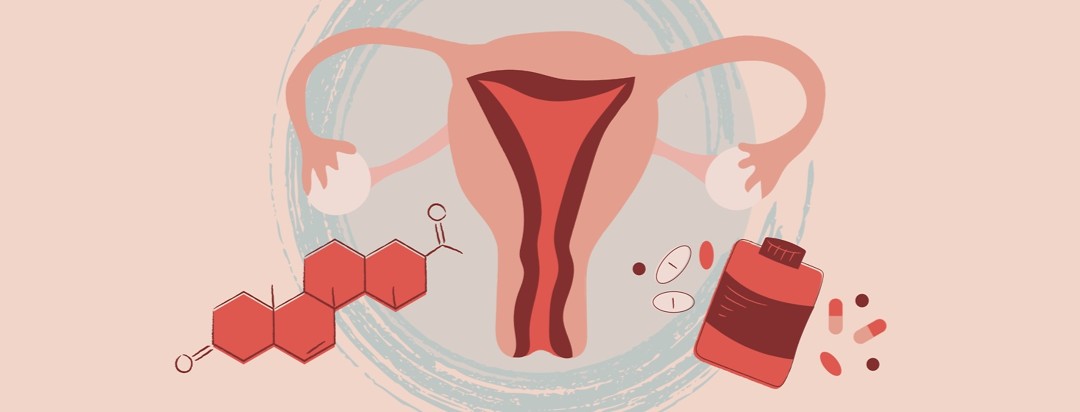Low Progesterone and Endometriosis
Often when endometriosis is discussed, the main sex hormone that is referred to is estrogen, which makes sense given endometriosis is an estrogen-dependant condition. However, progesterone plays an important role, as it can mitigate the effects of endometriosis.
What is progesterone?
Progesterone is natural sex hormone that is secreted by a gland called the corpus luteum after ovulation; It is important for the menstrual cycle and helps to regulate your cycle, but it’s also crucial for the maintenance of pregnancy.
After ovulation occurs each month, progesterone helps prepare the uterus for pregnancy, if pregnancy does not take place, progesterone levels drop and menstruation occurs. Progesterone also helps to balance the effects of estrogen, for example, estrogen thickens the lining of the uterus, whereas progesterone thins the uterus lining.
Progesterone can also lower inflammation, promotes sleep and calms the nervous system because it converts to a steroid known as allopregnanolone which has a calming effect on the brain.1 If you are not ovulating, then you will be deficient in progesterone. Taking the pill or a synthetic form of progesterone is not the same as producing natural progesterone because the synthetic form known as progestin does not convert to allopregnanolone.2
The link between progesterone and endometriosis
It is believed that a loss or alteration of progesterone signaling in endometrial tissue contributes to endometriosis.3
As progesterone plays a role in preventing the excessive growth of endometrial tissue, in women with endometriosis, a failure of progesterone prevents the proliferation of endometrial tissue. There is also a range of other functions of progesterone which contribute to the immune dysfunction seen in patient’s endometriosis.3
This phenomenon may not be due to a lack of progesterone in the body, because the endometrial tissue appears to be resistant to the positive effects of progesterone, regardless of whether endometriosis patients are producing it naturally or supplementing with it.3
Why does endometrial tissue become resistant to progesterone?
It’s not known what causes progesterone resistance but a few theories suggest it may begin prior to birth.3 Inflammation is implicated, as the chronic inflammatory states as seen in endometriosis patients prevents the action of progesterone, further contributing to inflammation. Environmental toxins such as dioxin are also believed to cause progesterone resistance and are linked to endometriosis. Other theories include genetics and changes to gene expression.
Another theory is called retinoid resistance. Studies have reported that abnormal retinoid metabolism is implicated in endometriosis as well as progesterone resistance.3,4 Retinoids come from vitamin A. And are involved in a range functions in the body, such as embryo development, reproduction, gene expression, immune function and can help reduce inflammation.
Treatments of progesterone resistance
Often, synthetic progesterone is used and known as progestin. However, it is believed progestins have limited efficacy due to progesterone resistance in the endometrial tissue.
One type of synthetic progestin that may be of benefit is called Dienogest, which is commonly sold under the brand name Visanne.3
Other synthetic hormones delivered by an inter-uterine system such as Mirena have also shown benefits in symptom relief and reducing endometrial tissue growth. However, the benefits of synthetic hormones are limited.3
Natural treatments can also help. Vitamins and minerals such as vitamin A, zinc, fish oil, curcumin, and magnesium can reduce inflammation that contributes to progesterone resistance. Additionally, vitamin A and zinc are important for immune health.
It's also important to support hormone detoxification so that estrogen levels do not become too high. This can be done by increasing fiber and drinking enough water.
Community Poll
Have you told your employer about your endometriosis diagnosis?

Join the conversation